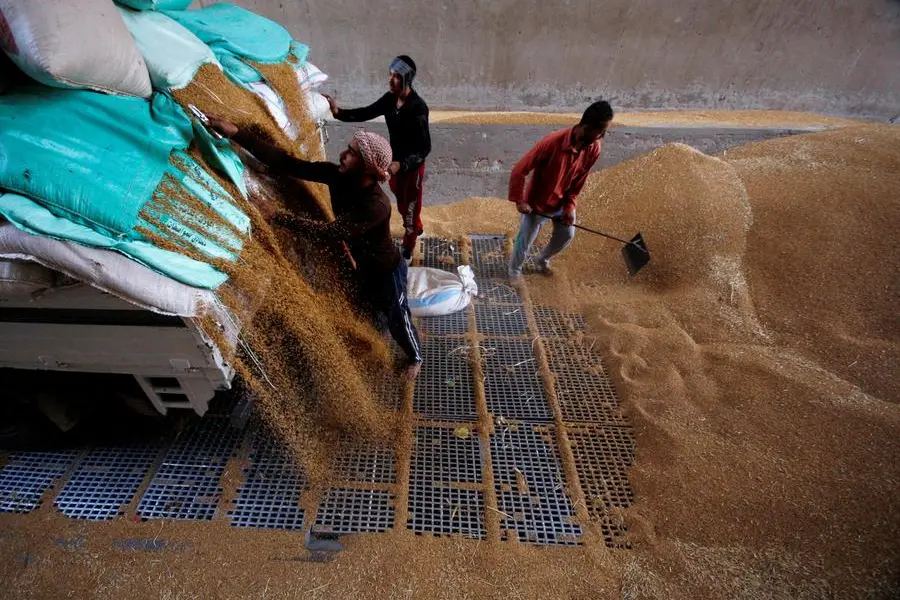PHOTO
Egypt expects to harvest 10 million tonnes of wheat this year, up from 9 million in 2023, driven by improved crop yields and ambitious land reclamation efforts, Agriculture Minister Alaa Farouk told Reuters late on Wednesday.
He said 3.1175 million feddans (about 1.30 million hectares) have been cultivated this season — slightly lower than the 3.5 million feddans announced earlier by the planning ministry and 3.2 million feddans in 2024 (1.34 million hectares), suggesting a possible decline in total wheat area.
Farmers have told Reuters that wheat has become less profitable compared to crops like beet, whose area increased from 500,000 feddans (210,000 hectares) to 700,000 feddans (294,000 hectares) this year.
The government plans to buy 4-5 million tonnes of local wheat and import about 6 million tonnes to provide heavily subsidised bread for over 69 million Egyptians.
Farouk said newer high-yield wheat strains developed by the Agricultural Research Center have raised productivity by 7-8.5%.
"This is vertical expansion, and horizontal expansion is coming," he said.
That horizontal expansion is led by the military-linked Mostakbal Misr for Sustainable Development, which plans to reclaim 4 million feddans across the country.
Farouk said some of that land is ready for production and the rest will follow in the next two years, offering major opportunities for agricultural investment.
Mostakbal Misr, recently tasked with wheat imports, is also developing infrastructure and growing crops tailored to local consumption, exports and agri-processing, Farouk said.
Farouk declined to comment on revenue flows from its operations, referring the matter to the finance ministry.
Reuters was unable to immediately reach the finance minister for comment.
Farouk added the government is studying a potential rise in local fertilizer prices. Urea and nitrate fertilizers cost around 9,500 Egyptian pounds ($185) per tonne to produce but are sold at a subsidized 4,500 ($87.63). Export prices reach up to 20,000 pounds ($389.48), Farouk said.
Fertilizer firms, which are obliged to sell 55% of output at a discount in exchange for subsidised natural gas, have pushed for price hikes.
Separately, Egypt is overhauling its underperforming commodities exchange to enable direct crop trading, which would require regulation amendments which Farouk said are expected to be completed this year.
$1 = 51.35 Egyptian pounds
1 feddan = 0.42 hectare
(Reporting by Ahmed Hagagy, Writing by Mohamed Ezz, editing by Ed Osmond)





















